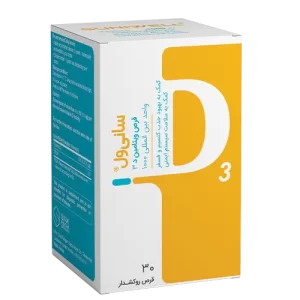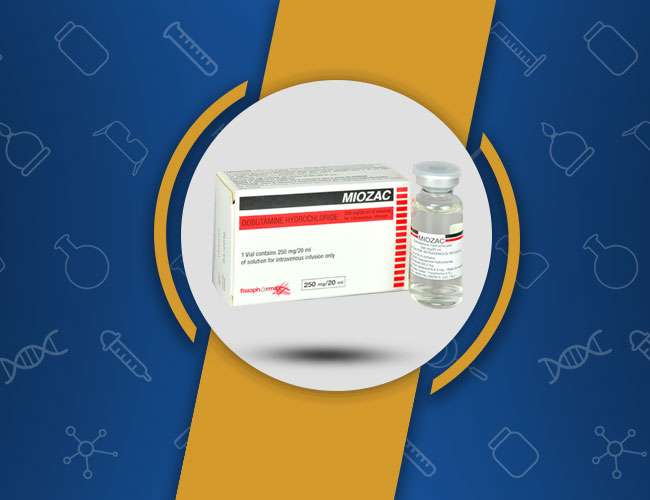
Vitamin D3 -1000 iu

Dubotamine is an injectable medicine used as an inotropic drug to control bradycardia in myocardial infarction, heart surgery, myocardial injury, septic shock and cardiogenic. It is also used in some cases to prevent and treat acute hypotension.
Debutamine has a direct inotropic effect. By directly stimulating beta-one-heart receptors, it increases the contractile strength and stroke volume of the heart muscle, thereby increasing cardiac output. Dubotamine reduces the high pressure caused by ventricular filling (reduces preload) and facilitates the conduction of the ventricular atrial node. Increased cardiac output due to this drug, in addition to its dopaminergic effects, improves renal blood flow and urinary excretion.
The metabolism of this medicine is hepatic and is converted to inactive compounds. The half-life of the medicine is about 2 minutes and its effect begins after 1-2 minutes. If the infusion rate is slow, the onset time may increase to 10 minutes. The duration of action of the medicine is less than 5 minutes and its excretion is mainly through the kidneys and as a metabolite.
Dubotamine infusion of heparin and hydrocortisone, cefazolin, cephalothin and penicillin from one infusion tube is not recommended.
Dubotamine is incompatible with alkaline solutions such as sodium bicarbonate.
The change in color of the solution to pink is due to partial oxidation. However, if the medicine is taken during the recommended period, its potency is not reduced.
Dubotamine is an injectable medicine used as an inotropic medicine to control bradycardia in myocardial infarction, heart surgery, myocardial injury, septic shock and cardiogenic. It is also used in some cases to prevent and treat acute hypotension.
Patients with idiopathic hypertrophic subaortic stenosis should not use this medicine at all.
Some of the side effects of dobutabene include:
Cardiovascular: Increased heart rate, increased systolic blood pressure, premature ventricular contractions, angina, chest pain, palpitations
Central nervous system: Headache
Digestive: Nausea
Respiratory: Shortness of breath
Other complications (unspecified percentage):
Cardiovascular: Hypotension, ventricular ectopy
Endocrinology and metabolism: Decreased serum potassium.
1- This medicine should be used with caution if there is a small amount of blood or a heart attack.
The infusion rate and duration of treatment depend on the patient’s response. Determination of this response is determined by heart rate, urine flow, and, if possible, abnormal cardiac activity, blood pressure, central venous or wedge pressure, and cardiac output.
Severe hypotension complicates cardiogenic shock.
Other Products